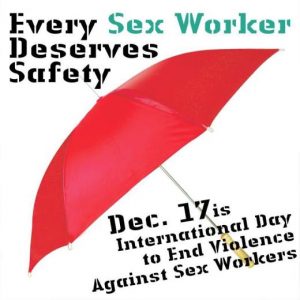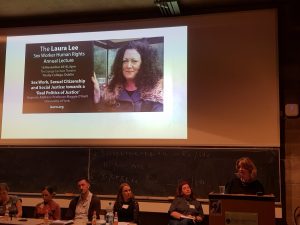BtG is very pleased to be able to share this blog feature by Dr Kate Lister, Leeds Beckett University @literaturepeep and the fabulous @WhoresofYore This was originally an article published by Kate in Inews on 23rd May 2018. https://inews.co.uk/opinion/this-is-what-the-report-on-pop-up-brothels-missed-out/
It formed a response to the All Party Parliamentary Group on Prostitution’s report Behind Closed Doors based on their ‘Inquiry’ into ‘Pop Up Brothels. Beyond the Gaze had been very alarmed to read the report and it’s recommendations as the ‘inquiry’ had ignored the data from BtG (the largest study of online sex work in the UK) and from sex worker organisations, ignored the thousands and thousands of independent sex workers who use online for their marketing, safety, networking with other sex workers and accessing information and support, particularly peer support. The inquiry has demonstrated a lack of rigor in data collection and transparency about how the evidence submitted to them has been assessed. Their calls for the criminalisation of purchasing sexual services and the banning of online adult services advertising would be a damaging duo of law which would undermine sex worker safety, independent working, livelihoods, support networks and would not address the exploitation that some sex workers experience. Kate covers many of the limitations and problems with the report.
‘This is what the report on ‘pop-up brothels’ missed out’- Dr Kate Lister
Read more at: https://inews.co.uk/opinion/this-is-what-the-report-on-pop-up-brothels-missed-out/
‘Monday saw the publication of the All Party Parliamentary Group (APPG) on Prostitution and the Global Sex Trade’s report into sexual exploitation in England and Wales – titled ‘Behind Closed Doors’. If you skip to the endnotes section of this report that details ‘evidence collection’, you will see that the APPG requested and received written evidence from numerous groups, including the Sex Work Research Hub – a network of 150 researchers and academics across a range of Universities and disciplines working on sex work, and sexual exploitation. As a board member of the Sex Work Research Hub I can confirm that the hub did indeed provide detailed data on so-called ‘popup brothels’ and online sex work to the APPG, and I can also confirm that virtually all of it was ignored in the final report itself. Data on sex work was also gathered from National Ugly Mugs, the English Collective of Prostitutes, SCOT-PEP, Beyond the Gaze, and Basis Yorkshire. The vast majority of which was ignored, or buried in the reference notes, in favour of a handful of case studies, cherrypicked or anecdotal evidence, and an aggressive anti-sex work agenda.

The data contradicting their report
But why would a parliamentary group ignore data that directly contradicts the final findings of their report? Because this inquiry was never about presenting an unbiased report into modern sex work. It has always been about validating pre-existing political agendas. ‘If this were an academic research group, the demonstrable evidence of prejudice and bias within the ‘group officers’ would make it extremely unlikely to get past an initial ethics committee.’ The ‘officers’ of the self-appointed APPG include Conservative MP Fiona Bruce, who is an Evangelical Alliance council member, sits on the All Party Parliamentary Pro-Life Group, and has long campaigned to criminalise the clients of sex workers. Labour MP Thangam Debbonaire, who once argued that decriminalisation of sex work could result in women being raped and not being able to do anything about it. Lord McColl of Dulwich, whose anti-sex work agenda is well known, and who introduced a private member’s bill to prohibit the advertising of prostitution, in 2015. Labour MP Jess Phillips, who criticised Jeremy Corbyn for his views on decriminalising sex work, and called sex work ‘a known violence against women’. Labour MP Sarah Champion, an outspoken abolitionist who had to resign her position as shadow equalities minister after controversially claiming that ‘Britain has a problem with British Pakistani men raping and exploiting white girls’, and Labour MP Gavin Shuker, who is also Vice-Chair of the Christians in Parliament APPG, and has held the chair for the APPG into prostitution since 2014, when he published the group’s last report into sex work in Britain. They clearly have an agenda. If this were an academic research group, the demonstrable evidence of prejudice and bias within the ‘group officers’ would make it extremely unlikely to get past an initial ethics committee. Quite why the APPG felt the need to publish this inquiry when the Home Affairs Committee published a comprehensive report into UK sex work back in 2016, and recommended full decriminalisation, is unclear. It is very disappointing that the APPG did not engage with or reference the considerable peer-reviewed data submitted to them by members of the sex work research. Not to mention annoying when you consider the work involved in responding to each of their questions.
What is a pop-up brothel?
But, so that data and time is not wasted, I will share some of that research here instead. There are two main points of concern in the APPG inquiry, that are flagged up as recent developments in the sex trade: ‘popup brothels’ and websites where sex workers advertise. So, the first thing that needs addressing is what is a ‘popup brothel’? ‘The reality is that there is nothing new about a ‘popup brothel’ apart from a sensationalistic name which has garnered considerable media attention’ According to the APPG report, it is ‘a term commonly used to describe brothels which are set up for a short period of time in residential properties’. The reality is that there is nothing new about a ‘pop-up brothel’ apart from a sensationalistic name which has garnered considerable media attention. The APPG inquiry makes the assumption that all popup brothels are inherently exploitative and associated with organised crime. This is simply not true and there is little evidence to suggest otherwise. Independent sex workers regularly travel throughout the country, advertising their services online, and stay at hotels, or hire an apartment at each destination. This is known as going ‘on tour’ and is a well-established practice. To stay safe, many sex workers like to tour together or share rented premises, and under UK law any premises where more than one person is offering a sexual service is legally recognised as a ‘brothel’, albeit on the short-term (pop-up) basis.
A shocking lack of understanding
Beyond the Gaze was a three year a project (2015-2018) into internet-based sex work, that was funded by the Economic and Social Research Council (their data has been almost entirely ignored by the APPG as well.) Beyond the Gaze found that many independent sex workers, both UK citizens and migrant workers, travelled for work regularly, either for day appointments across their region of residence or to other regions for work opportunities, or staying in hotels or renting a property for work. To make the assumption that anyone selling sex from a short-term rented property must be coerced reveals a shocking lack of understanding of the modern sex industry. And it’s not the only assumption the report makes. Read more I survived prostitution. This is why I want the buying of sex to be made illegal The issue of migrant sex work is returned to again and again – specifically, migrants from Romania. The report claims that 86 per cent of women working in brothels in Leicestershire in 2016 were Romanian, and that 75 per cent of women working in brothels in Northumbria between 2016-18 were Romanian. What’s more, in 2018, a ‘representative of the inquiry’ accompanied police to a brothel raid in Cambridge, where they found that the women there were (wait for it) – Romanian. They also found that none of these women actually wanted help from the police or held information about organised crime. But still – they were Romanian.
Sex workers use websites to stay safe

But being Romanian is not proof of sex trafficking. The Office for National Statistics records that there were 413,000 Romanians and Bulgarians living and working in Britain last year alone. A 2013 comprehensive study on ‘Migrant Workers in the UK Sex Industry’, carried out by Professor Nicola Mai, interviewed 100 migrant sex workers and found 13 per cent felt that they had been exploited and 6 per cent had been trafficked. A 2011 study of Eastern European women selling sex in indoor locations in London showed that 7 per cent of women interviewed had been coerced into selling sex. Of course any number of trafficking victims is too much, no matter how small a percentage it is. Those involved in coercion and abuse must be punished to the full extent of the law. But, it is simply not the case that the majority of migrant sex workers have been trafficked into the country. ‘The report demands that websites must ‘be held legally accountable for the sexual exploitation they enable and profit from.’ The next area of concern for the APPG inquiry are the websites that sex workers use to advertise their services. The report demands that websites must ‘be held legally accountable for the sexual exploitation they enable and profit from’. Quite why the findings of Beyond the Gaze were overlooked here when they have conducted the largest research project into online sex work in the UK to date is beyond me. But, perhaps it is because Beyond the Gaze found that sex workers use these websites to stay safe, independent and off the streets. But then, one of the most troubling aspects of the APPG report are the claims women working away from the street is somehow a bad thing as ‘public visibility of women in street prostitution can increase the likelihood they will come into contact with external agencies’. Far from enabling abuse, online sites allow sex workers to screen potential clients. Professor Scott Cunningham of Baylor University has been researching online sex work and the correlations with violent crime for years and published his data in 2017. He found that after Craigslist created an ‘erotic services’ section, the rate of female homicides in US fell by 17 percent. The reason was simple. Sex workers could screen their clients and share information.
The Nordic model
Predictably, the APPG calls for a criminalisation of clients, the so-called ‘Nordic Model’ that has been in effect in Northern Ireland for the last year. But, under the Nordic Model violent crime reported against sex workers in Northern Ireland has risen by 77 per cent, and similar data is now coming out of France, which adopted the Nordic model in 2016. In fact, none of the data that shows end demand tactics make working conditions more dangerous for sex workers has been included in the final report. In many places, the report is so out of touch, its laughable. But, the inquiries’ neglect to bring in the sex worker voice, print and engage with the data provided by the leading sex worker rights organisations is no laughing matter. In the entire report, only one ex-sex worker gets a voice; Mia de Faoite, a core partner in the ‘Turn Off the Red Light’ campaign which resulted in the Nordic model being introduced to Northern Ireland in 2017. No current sex worker voices are included. No voices speaking for decriminalisation are included. No data that supports decriminalisation is included. It’s not so much what goes on ‘Behind Closed Doors’ that is the issue here, but what goes on inside closed minds. More from i:
Read the original article at: https://inews.co.uk/opinion/i-survived-prostitution-this-is-why-i-want-the-buying-of-sex-to-be-made-illegal/
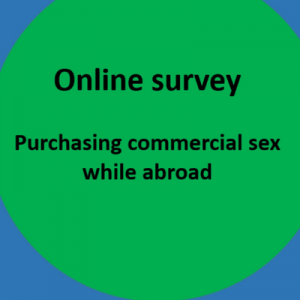

 Industry research. The chapter is entitled Technology mediated sex work: fluidity, networking & regulation in the UK.
Industry research. The chapter is entitled Technology mediated sex work: fluidity, networking & regulation in the UK. 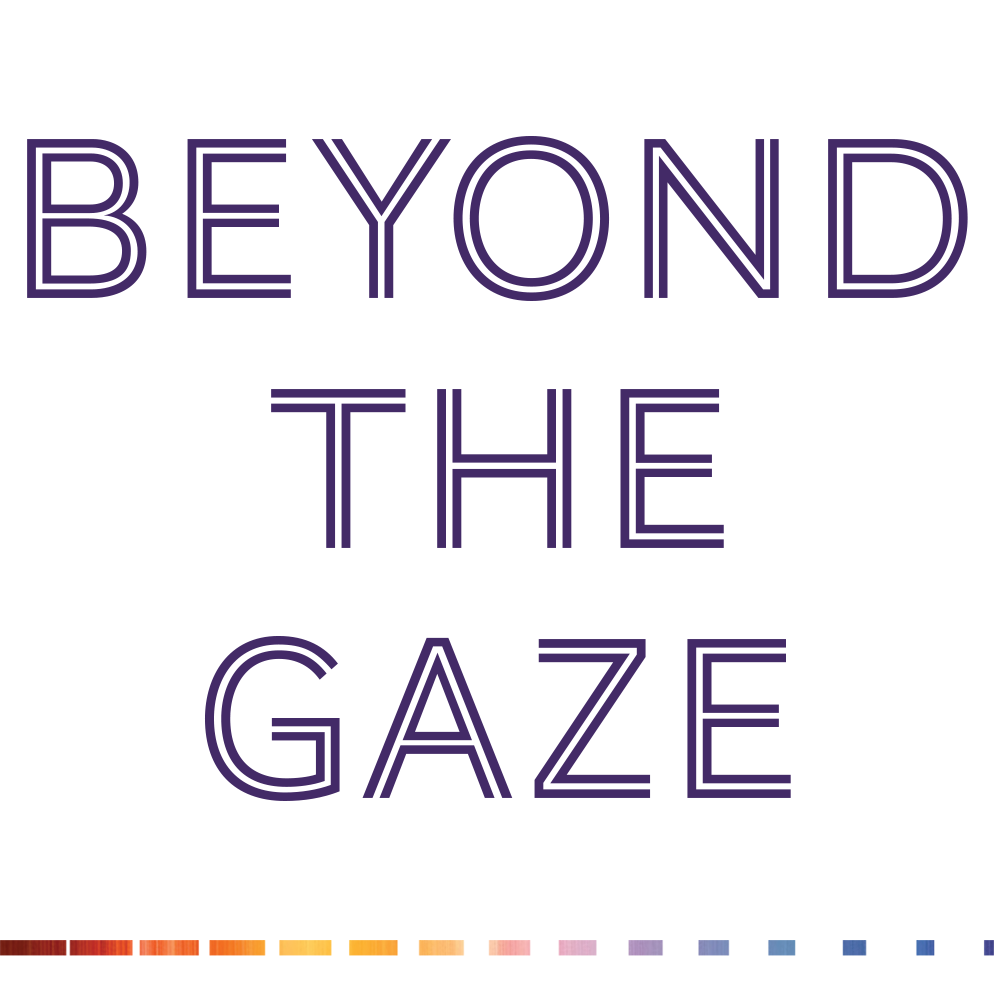
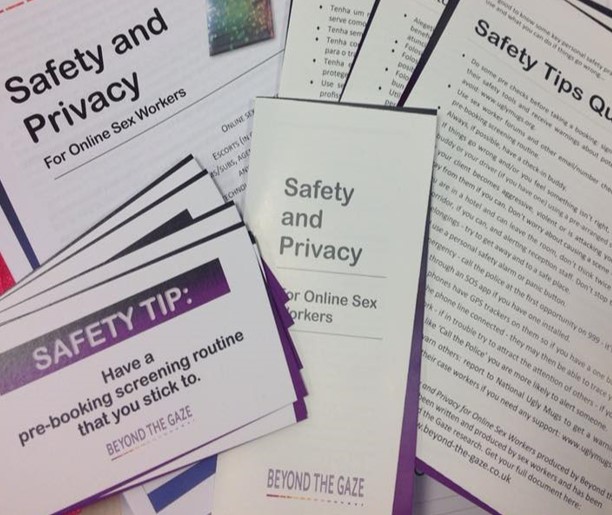



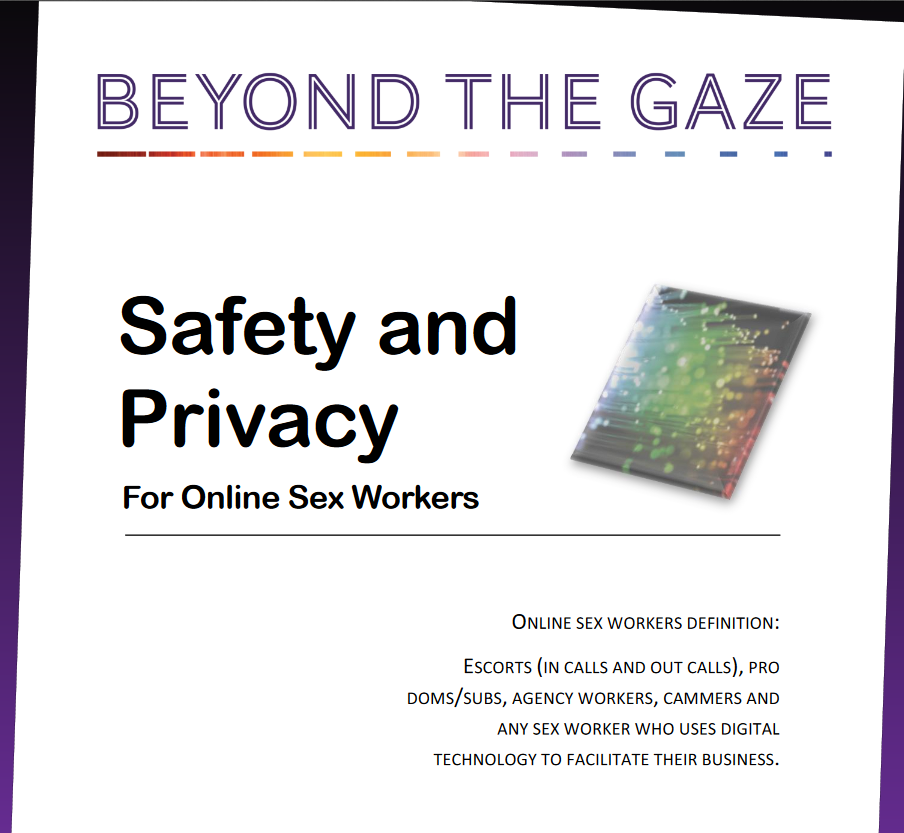
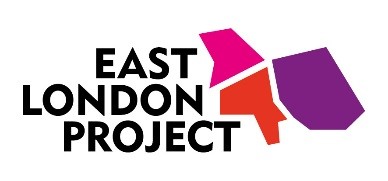

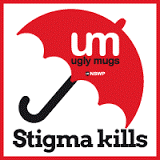 In our research we have found that the relationship between sex work and violence is shaped by three key elements which allow for differences in the research evidence on the levels of violence between sectors and across different jurisdictions. Firstly, the environment /spaces in which sex work takes place, this acknowledges the different locational and organisational factors which shape safety across sectors. Secondly, the relationship to the state, that is where a particular form of sex work sits in the regulatory systems, it’s legal status, how and the extent to which it is criminalised and how those laws are enforced. For example, in legal frameworks that criminalise sex work or have quasi criminalisation with some activities associated with sex work criminalised, a difficult context is created where it is hard to gain sex worker confidence and trust in the police. When the police are involved in arresting sex workers, their clients or others who work with sex workers and are also the organisation sex workers must look to for protection and to report crime it is challenging for trust in the police to be achieved.
In our research we have found that the relationship between sex work and violence is shaped by three key elements which allow for differences in the research evidence on the levels of violence between sectors and across different jurisdictions. Firstly, the environment /spaces in which sex work takes place, this acknowledges the different locational and organisational factors which shape safety across sectors. Secondly, the relationship to the state, that is where a particular form of sex work sits in the regulatory systems, it’s legal status, how and the extent to which it is criminalised and how those laws are enforced. For example, in legal frameworks that criminalise sex work or have quasi criminalisation with some activities associated with sex work criminalised, a difficult context is created where it is hard to gain sex worker confidence and trust in the police. When the police are involved in arresting sex workers, their clients or others who work with sex workers and are also the organisation sex workers must look to for protection and to report crime it is challenging for trust in the police to be achieved.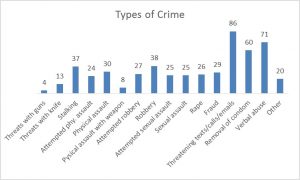 common crimes experienced by those people who responded to the survey (86 out of 240) were digitally facilitated which included threatening & harassing texts/calls/emails plus verbal abuse.
common crimes experienced by those people who responded to the survey (86 out of 240) were digitally facilitated which included threatening & harassing texts/calls/emails plus verbal abuse.